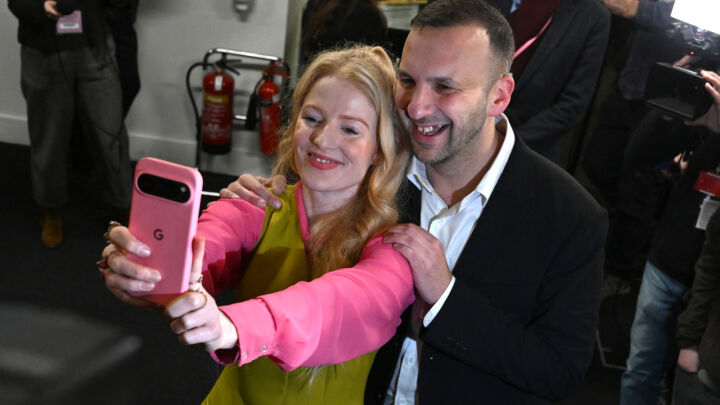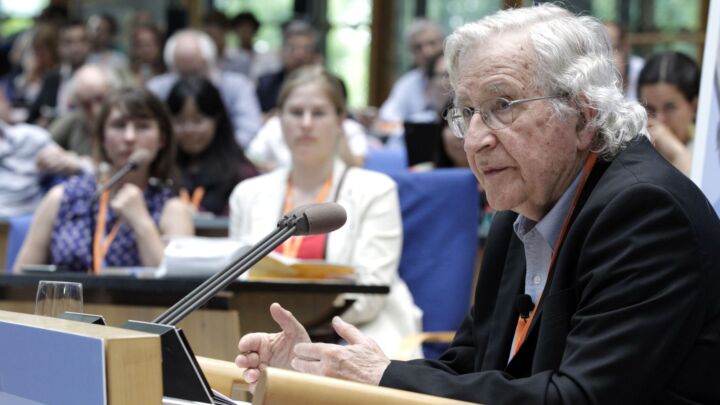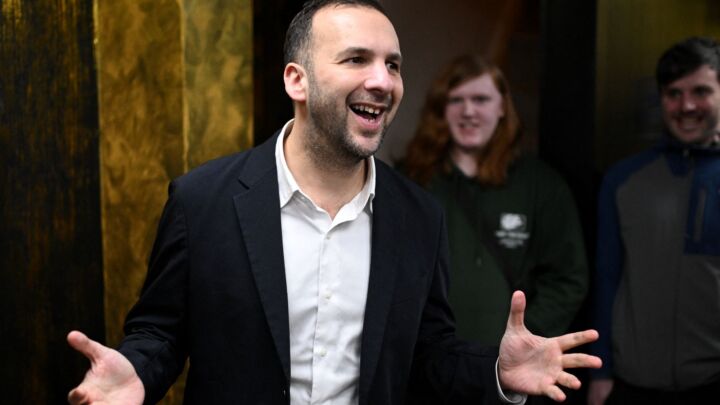Prevent: a very risky strategy
The UK’s clueless counterterrorism strategy sees threats everywhere.

Want unlimited, ad-free access? Become a spiked supporter.
In recent weeks, there has been much attention paid to, and some considerable opprobrium poured on, the UK government’s latest version of its Prevent strategy. Prevent is one part of the four Ps (the others are Pursue, Protect and Prepare), originally framed within CONTEST – the UK’s counter-terrorism strategy. CONTEST – driven by a dawning recognition of the problems posed by homegrown terrorism – was first published in 2006, the year after the 7/7 London bombings, and (together with Prevent) has undergone significant revisions since, including: to demand adherence to specific values; to differentiate and broaden its remit; and to monitor outcomes more rigorously.
Since its inception, hundreds of millions of pounds have been poured into Prevent in order to encourage liaison and dialogue between the authorities and the supposed representatives of various Muslim religious and community groups. The latest furore results from changes to Prevent mandated under the Counterterrorism and Security Act 2015, in particular Section 26, which places a duty on certain specified authorities (local authorities, health authorities, schools, colleges, universities and prisons) to prevent people from ‘being drawn into terrorism’ (a notably passive formulation).
Being more socially and culturally oriented than the other elements of CONTEST, Prevent has always been subject to considerable criticism. Initially, much of this came from traditionally right-wing groups and media who accused the government of consorting with and funding radicals. More recently, after the 2011 revisions, left-wing and radical groups have joined the fray, criticising the partnerships created by Prevent on the grounds that they encourage the infiltration of Muslim communities and justify a culture of suspicion and surveillance.
Both sides in this debate have a point. Following the latest changes to Prevent, various institutions, groups and associations sought to make their reservations clear by responding to the government’s call for feedback. Many of these responses are available online and raise important points about terminology, academic and religious freedom, as well as trust and accountability.
But they also miss the wider problem, which is that the approach taken by Prevent – explicitly aimed at identifying those ‘at risk’ of becoming terrorists, and implicitly framed in the fashionable language of the so-called precautionary principle – is fundamentally flawed. Worse, its latest incarnation, rather than offering mere guidance, now imposes a duty backed up by significant sanctions for those identified as being non-compliant. It transforms risk management from a loose organising principle for societies that lack a broader strategic vision into a set of laws that impact on everyone.
Of course, as the American sociologist Robert Merton noted as far back as 1948, in an article on ‘The self-fulfilling prophecy’, false assumptions have real effects for all parties. In that regard, Prevent has been problematic since its inception. The very act of engaging particular groups around specific issues has the effect of identifying them as different. But it also limits the potential for genuine dialogue between communities, leading to silly spats between groups accusing each other of being either Islamophobes or Islamofascists instead.
As I have noted before, the real drivers behind homegrown terrorism are neither religious nor political ideologies. Rather, they emerge from domestic cultural confusion (as well as confusion further afield, as evidenced by the inability of the 2008 Mumbai attackers to identify their demands). Ours is an age in which Islam acts more as a motif than a motive. It emerges as a rationale for anger rather than necessarily driving it in the first instance. Why Islam appears to have become the religion of choice for the readily disaffected in the West is worthy of further study. Still, we are all engaged in a search for purpose and meaning due to the failure of contemporary society to provide any coherent direction. Governments also fall foul of this lack of societal purpose when presenting ill-defined de-radicalisation strategies that are incapable of saying what people should be de-radicalised to.
Accordingly, if we are to ‘identify those vulnerable to being drawn into terrorism’ – knowing that there is no single or simple model for this process – it ought to be almost everyone that now comes under the purview of the authorities (although, fortunately, only an impossible-to-identify minority will ever act out their nihilistic fantasies). And, far from being vulnerable and readily groomed online by charismatic preachers or activists, would-be jihadists, according to most evidence, tend to be smart and wilful individuals determined to connect with those forces that appear to inspire them in the first place. The real question to be addressed, then, is why it is that the jihadist narrative falls on such fertile soil here in the UK? Or, to put it another way, what it is about contemporary society that propels a minority to find meaning elsewhere?
The confusingly named Prevent Duty Guidance defines extremism as ‘vocal or active opposition to fundamental British values, including democracy’, among other things. But who is it that is undermining democracy in the current climate? When Avinash Tharoor – a contemporary of Mohammed Emwazi (aka Jihadi John) at the University of Westminster – noted in his Washington Post piece that a Westminster student wearing a niqab opposed Kant’s democratic peace theory during a seminar on the grounds that, ‘as a Muslim, I don’t believe in democracy’, who should have been reported to the authorities? The student? The instructor, who Tharoor noted, did not question her? Or all parties to the exchange (or lack of it)?
Prevent also puts great store by ‘Channel’ – a programme that offers more targeted support to certain individuals identified as being ‘at risk’ by various authorities – which has now been put on a statutory footing. That such programmes, like those offered by the Religious Rehabilitation Group in Singapore, may actually make matters worse by presenting rather confused individuals with the somewhat more robust anti-modernist discourses of enthusiastic mentors, as well as teaching Islam to those who hitherto knew little of it, is rarely conceded.
Authorities don’t simply have to comply with Prevent. There are many other interrelated policies, too, and a veritable alphabet soup of acronyms and agencies: CTLPs, LSCBs, BCUs, CSPs, LSPs, NCTTs and PEOs – to name just a few. Far from being strategic, the cacophony of voices reflects the absence of direction and purpose. Little wonder that former MI6 chief Sir Richard Dearlove made a speech at the Royal United Services Institute last year asking for a sense of proportionality to be restored. At the height of the Cold War, his agency only ever put 38 per cent of its resources – at most – into addressing the presumed threat posed by the Soviet Union. Today, by contrast, in excess of 50 per cent of the budget of the three non-military security agencies is expended on counterterrorism.
When the Cold War ended in 1989, a few insightful voices noted that one of the consequences would be a short interregnum during which time social forces would have to be reorganised to maintain the status quo. This period might have offered some opportunities for political alternatives to emerge but, at the same time, the advent of an exaggerated consciousness of risk and a concomitant diminished sense of agency simultaneously pointed to what might lie ahead as a barrier to change. Albeit unconsciously, that new framework for society – organised around risk and precaution, and treating citizens as hapless victims – has now been legislated for, and we are beginning to see the signs of a new ideology emerging that will continue to close down avenues of opportunity.
As many world leaders joined hands two months ago – ostensibly to march for freedom of expression post-Charlie Hebdo – there were some who, somewhat naively, hoped this might represent the resurgence of a core Enlightenment value. In fact, what we witnessed was the last blast from the past, and the final closing of the door to freedom for the foreseeable future. It also confirmed the establishment of a new age of control through behaviour management and a now legally mandated expectation of conformity. That so many have been complicit in allowing this to happen only highlights the enormity of the task ahead for those who still hold to freedom as the basis for any enlightened future society.
Bill Durodié is chair of international relations at the University of Bath.
You’ve hit your monthly free article limit.
Support spiked and get unlimited access.
Support spiked and get unlimited access
spiked is funded by readers like you. Only 0.1% of regular readers currently support us. If just 1% did, we could grow our team and step up the fight for free speech and democracy.
Become a spiked supporter and enjoy unlimited, ad-free access, bonus content and exclusive events – while helping to keep independent journalism alive.
Monthly support makes the biggest difference. Thank you.










Comments
Want to join the conversation?
Only spiked supporters and patrons, who donate regularly to us, can comment on our articles.